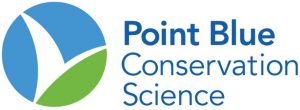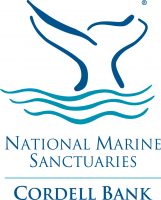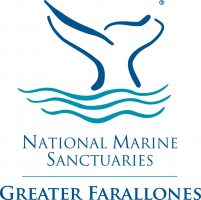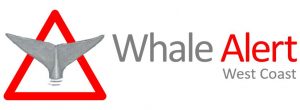ACCESS provides education opportunities by hosting a NOAA Teacher-at-Sea each year. ACCESS has hosted eleven NOAA Teachers-at-Sea to date.
The application and selection process generally takes place during the winter. The deadline for applications is late February (Feb. 28th), and applicants are notified by the end of March. The Teacher-At-Sea generally joins us during our July cruise on board of the NOAA RV Fulmar.
To apply, please complete the application forms (Form A), along with the two letters of recommendation (Form B and Form C) and send to Jennifer Stock, Education and Outreach Coordinator at Cordell Bank National Marine Sanctuary.
You were selected as our new Teacher-At-Sea… What to expect? What to bring?
 Field Season 2018
Field Season 2018
Pamela Schaffer
Middle school science teacher from Alameda
NOAA R/V Bell M. Shimada
Read the ship logs (July 1-11, 2018)
“I’ve sailed in the sanctuary waters for many years but it was amazing to see this area anew through the lens of an ocean scientist. The abundance and diversity of life in the area is phenomenal. Thank you for the opportunity to work along side an incredible team of researchers. It’s exciting to share this experience with my colleagues and students.”
 Field Season 2017
Field Season 2017
Jennifer Hartigan
Middle school science teacher from Alameda
NOAA R/V Fulmar
Read the ship logs (July 21-27, 2017)
“I gained a much deeper understanding of the ecosystem monitoring being done and how it’s important for the management and preservation of species. It inspires me to build coalitions among the school system, scientists and community partners to advance ocean literacy. I am so impressed by the impressive mentoring of the graduate students (and me!).”
 Field Season 2016
Field Season 2016
Dana Chu
High school science teacher from Sacramento
NOAA R/V Bell M. Shimada
Read the ship log (May 14-22, 2016)
“I am getting a lot of hands on experience with deploying the net to assisting with processing samples from the hoop net and Tucker trawl. It’s always exciting to see what we might have collected. I can’t wait to see what the rest of the week may bring. I wonder what interesting finds we will get with the midnight Tucker Trawl samples.”
 Field Season 2015
Field Season 2015
Michael Wing
High school science teacher from San Anselmo
NOAA R/V Fulmar
Read the ship logs (July 18-25, 2015)
Download science and career lesson plans
“I was never more than fifty miles from my home in Kentfield, California. But it was a different world. I sure am grateful to everyone on board, and to NOAA, Point Blue Conservation Science, the Greater Farallones National Marine Sanctuary and the Cordell Bank National Marine Sanctuary for giving me the opportunity to visit this special place.”
 Field Season 2014
Field Season 2014
Daniel Rivera
High school biology teacher from San Francisco
NOAA R/V Fulmar
Read the ship logs (July 16-24, 2014)
“Scanning for birds and mammals while riding atop a moving vessel can be quite challenging. You have to be well-trained in spotting the subtle and not so subtle differences in hundreds of organisms. It’s a tough job that requires good eyes, patience, a strong stomach, lots of practice, and the ability to withstand ever-changing weather conditions.”
 Field Season 2013
Field Season 2013
Kate Trimlett
High school biology teacher from Berkeley
NOAA R/V Fulmar
Read the ship logs (July 23-29, 2013)
Download seabird ecology lesson plan
“My favorite sighting was the leatherback sea turtle. Seven years ago and last summer I took a group of Berkeley High School students to Costa Rica to participate in a sea turtle conservation project. On these trips we saw a female leatherback laying her eggs and a hatchling making its way to the ocean. It was great to see when the leatherback popped its head out of the water several hundred miles from their breeding grounds.”
 Field Season 2012
Field Season 2012
Talia Romito
High school biology teacher from Monterey
NOAA R/V Fulmar
Read the ship logs (July 24-29, 2012)
“A life changing memory of the best kind, I treasure the team who became friends and the opportunity to encounter marine wildlife while making a meaningful contribution through data gathering to support protecting our precious planet.”
 Field Season 2011
Field Season 2011
Elaine Bechler
High school biology teacher from Santa Rosa
NOAA R/V Fulmar
Read the ship logs (July 21-26, 2011)
“Being on a vessel is a true adventure; it is very unpredictable and invigorating. Being a part of the survey team gives hands on experience of how scientists monitor the conditions of the ocean. It deepened my scope of understanding about marine research as well as the open ocean habitat. As an instructor, experiences like these become threaded into various science units and become a hook for the learner.”
 Field Season 2010
Field Season 2010
Deborah Moraga
Elementary school science teacher from Ohio
NOAA R/V Fulmar
Read the ship logs (June 21-27, 2010)
“Imagine standing next to an animal that is 12 times the length of you. It happened to us aboard the R/V Fulmar. Humpback whales where milling around our 67 foot boat… The chance to work alongside scientists as they chase their passion was an experience that I refer back to as I teach students about science.”
 Field Season 2009
Field Season 2009
Laurie Guest
Middle school science teacher from California
NOAA R/V Fulmar
No ship logs (July 17-22, 2009)
“I was lucky to be chosen to participate on a cruise outside the Golden Gate. Experience with real scientists! Birds with six-foot wing spans just above your head! Photos and stories to bring back to my classroom on the mainland! What a tremendous experience, being a Teacher at Sea”
 Field Season 2008
Field Season 2008
Beth Lancaster
High school biology teacher from Connecticut
NOAA Ship McArthur II
Read the ship logs (April 6-14, 2008)
Download marine food web lesson plan
“My Teacher At Sea experience in collaboration with the Cordell Bank Sanctuary, Greater Farallones Sanctuary and Point Blue Conservation Science provided me with a hands on experience that I have been able to share with my past and present students. Stories, practical research experience and and continued support from the Teacher At Sea program has resulted in the development of a successful Marine Biology elective course offering. It was really the experience of a lifetime for myself and my students.”



